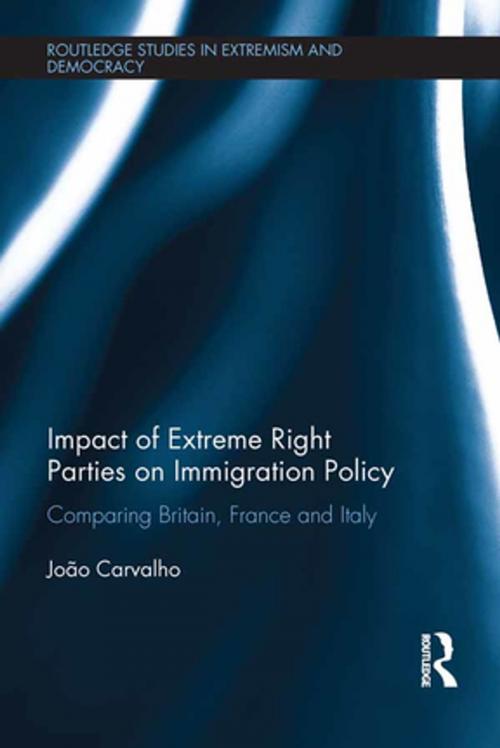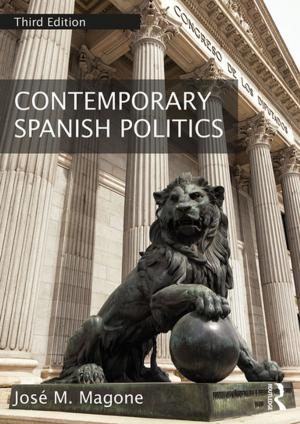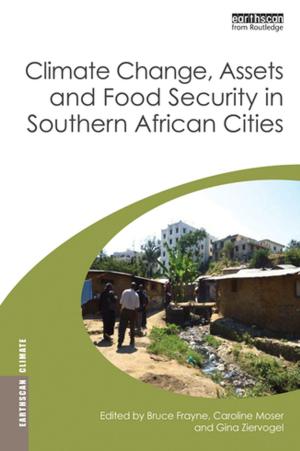Impact of Extreme Right Parties on Immigration Policy
Comparing Britain, France and Italy
Nonfiction, Social & Cultural Studies, Political Science| Author: | Joao Carvalho | ISBN: | 9781134640249 |
| Publisher: | Taylor and Francis | Publication: | September 5, 2013 |
| Imprint: | Routledge | Language: | English |
| Author: | Joao Carvalho |
| ISBN: | 9781134640249 |
| Publisher: | Taylor and Francis |
| Publication: | September 5, 2013 |
| Imprint: | Routledge |
| Language: | English |
Drawing on a mixed research methodology with a strong qualitative character, this book traces the political impact of the British National Party in the UK, the Front National in France and the Lega Nord in Italy by exploring their contagion effects on immigration politics and policy in particular over the patterns of inter-party competition, public behaviour and policy developments.
This book suggests that extreme right party impact on immigration politics and policy is an outcome of the extreme right parties’ electoral threats to established parties alongside the agency of mainstream political elites. It also highlights the decline in the intensity of extreme right parties’ contagion effects on public attitudes to immigration throughout the late 2000s or the potential overstatement of this political process in the past.
Featuring detailed case studies of the UK, France and Italy as three mature multi-party democracies where the extreme right was on the rise during the past decade, this work will be of great interest to students and scholars of populism, extremism, European politics and comparative and party politics.
Drawing on a mixed research methodology with a strong qualitative character, this book traces the political impact of the British National Party in the UK, the Front National in France and the Lega Nord in Italy by exploring their contagion effects on immigration politics and policy in particular over the patterns of inter-party competition, public behaviour and policy developments.
This book suggests that extreme right party impact on immigration politics and policy is an outcome of the extreme right parties’ electoral threats to established parties alongside the agency of mainstream political elites. It also highlights the decline in the intensity of extreme right parties’ contagion effects on public attitudes to immigration throughout the late 2000s or the potential overstatement of this political process in the past.
Featuring detailed case studies of the UK, France and Italy as three mature multi-party democracies where the extreme right was on the rise during the past decade, this work will be of great interest to students and scholars of populism, extremism, European politics and comparative and party politics.















